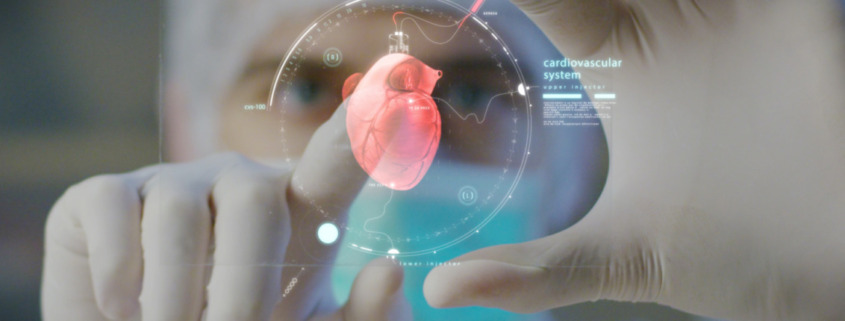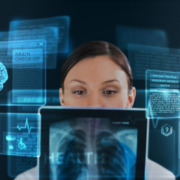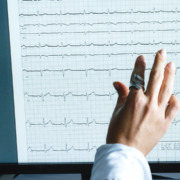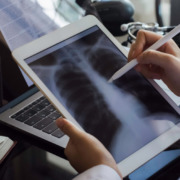Health 4.0: Understanding the Concept and Its Impacts
Last Updated on 20 de November de 2023 by Monica Jorge

We are currently experiencing what some researchers call the Fourth Industrial Revolution, and Health 4.0 plays a crucial role in social transformation through the efficient use of innovation.
Discussing innovative topics such as artificial intelligence, virtual reality, robotics, machine learning and IoT may seem very distant from the scope of healthcare, especially in countries where there are still challenges in accessing medical services. However, the use of these resources is already transforming the work of professionals in the area.
Do you want to understand how this transformation is happening? In this article we explain how the concept of Health 4.0 is being consolidated in the day-to-day provision of health services and its impact on professional practice.
The Fourth industrial Revolution and What Health 4.0 is
Currently it is impossible to think of a life without the technological resources that are becoming increasingly essential in our daily lives.
Technology and smart devices have transformed the way we perform simple tasks, work, communicate and relate to each other as a society.
The Fourth industrial Revolution is happening at this very moment, marked by the use of great innovations such as artificial intelligence, nanotechnology, internet of Things (IoT) and cloud computing.
Industry 4.0: Data, Automation and Efficiency
Since the first revolution, which began in the second half of the XVIII century, the industry has undergone constant transformations. Two other revolutions took place in the following centuries, mainly with the discovery of new sources of energy.
This time, however, the evolution does not only imply structural improvements in the production chain, but also connects data, automates processes and transforms human relationships in in unprecedented ways.
The result of these developments can be seen essentially in the agility and efficiency of processes in the most diverse areas.
Another significant aspect of the fourth revolution is the expansion of these resources into essential areas of society, such as healthcare.
Read more: 3 ways telemedicine helps clinics to expand their capacity for patient care
Health 4.0 or Digital Health
In this scenario of exponential innovation, Health 4.0, also known as Digital Health, emerges. The concept deals with the application in medical services of technological resources developed by Industry 4.0.
The use of these innovations is recognized by the World Health Organization (WHO) as vectors of improvements in the work of the professionals involved and in the result of the care obtained by patients.
Through these tools it is possible, for example, to promote integrated, data-based and fully customized healthcare.
In addition, the use of artificial intelligence and automation generates a break in paradigms in a sector historically linked to practices that depend almost entirely on face-to-face and human action.
According to an article published by the Wisconsin Institute for Healthcare Systems Engineering at the University of Wisconsin, there are two main elements representing Health 4.0:
- Intelligence: use of AI capabilities in promoting individualized, patient-focused care to improve diagnosis and treatment. Artificial intelligence allows you to stratify, classify, perform predictive analysis, monitor and optimize treatments.
- Interconnection: Integrating healthcare systems forms an information network that enhances efficiency throughout the process. Through technology it is possible to connect: medical staff involved, with each other and with patients; insurance and cost and financial systems; equipment, devices and sensors; historical case data; health institutions; among others.
Read more: Telecardiology: capabilities and features
Technology allied to practice in medical services
In practice, what we see is technology allowing to promote more efficient healthcare delivery through:
- Real-time telemedicine
- Remote monitoring through telemedicine
- Customized health apps
- Electronic patient records (EPR)
- Remote diagnostics
- BI and Big Data for decision making
- Digital integration between clinics, hospitals and laboratories
- Genomic medicine
- Trackers and biosensors
What does WHO say about ethical challenges and issues?
It is impossible to talk about health 4.0 without considering ethical and human rights issues. When technology began to impact medical services, automatically the topic also came into discussion.
In 2021, the National Health Organization (WHO) released the report “Ethics and governance of artificial intelligence for health”. The document resulted from an 18-month effort by a multidisciplinary team of experts in health, technology, human rights and ethics.
According to the institution itself, the report aimed to identify and debate the ethical challenges and risks of using artificial intelligence in healthcare.
In the document, published in English, it is also possible to find recommendations that seek to ensure that the technology meets the sector’s needs appropriately.
Key themes of the publication focus on stakeholder responsibility, data protection and technology application considering the diversity of existing socioeconomic environments.
Who recognizes the great potential of artificial intelligence and technology in general to promote improvements in health services. Therefore, it works to promote the maximum use of its benefits with minimal risks.
What changes for healthcare professionals with Health 4.0
The Covid-19 pandemic accelerated processes to promote better health services. This rapid change in behavior provided valuable insights into how medical care should evolve in all its segments.
Telemedicine Practice, for example, eventually gained momentum due to the need to avoid exposing patients to hospital environments and to speed up diagnosis in order to avoid complications with the disease.
With the Controlled Health Emergency, it became possible to evaluate the benefits of the use of technological resources in healthcare and definitively open space for Health 4.0 practices.
In a Digital Health Environment, service delivery happens through systems equipped with smart and integrated devices to generate the best results. Artificial intelligence can assist the doctor in predicting diagnoses, treatments and preventive actions, functioning as a kind of co-pilot.
In this context, doctors and other health professionals can rely on technology support to make more assertive and data-based decisions, streamline procedures and even reduce costs.
Conclusion
The digital revolution in healthcare is happening right now and combining technology and medical services is a path of no return.
Although mentioning topics such as IoT, robotics and cloud systems may seem far from medical reality, these technologies are already a reality in several countries, even in Brazil.
The advances made so far demonstrate improvements in patient relationships and greater efficiency in both diagnosis and treatment.
Telemedicine, predictive medicine, remote diagnosis, and many other resources are improving the practice of healthcare services and, consequently, the quality of life for the population.

Article translated by Celen Diaz
Graduated in Modern Languages and Business Translation,
with more than 10 years of experience as a Linguist.








